Week in Freethought History (July 1-7)
Here’s your Week in Freethought History: This is more than just a calendar of events or mini-biographies – it’s a reminder that, no matter how isolated and alone we may feel at times, we as freethinkers are neither unique nor alone in the world.
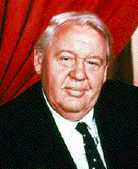 Last Sunday, July 1, but in 1899, English-American actor Charles Laughton was born. Although Laughton’s interest in men as sexual partners was predominant, he and Elsa Lanchester became life-long companions. They married in a civil ceremony in 1929. Throughout a distinguished career, Laughton performed in 41 plays and 55 films. Most memorable were his performance as Captain Bligh in Mutiny on the Bounty (1935); the title role in 1933′s Private Life of Henry VIII, for which he won a Best Actor Oscar; a poignant Quasimodo in The Hunchback of Notre Dame (1939); and as eccentric lawyer in Witness for the Prosecution (1957). Biographer Simon Callow says Laughton’s brothers invited a procession of priests to attend the dying man, as he lay drugged and gasping for air. Laughton mused, “I wish they were more intelligent.” His wife opposed any attempt to trick him “into endorsing something he had vehemently denounced all his adult life.” But during one of her infrequent absences, a priest was rushed in to administer extreme unction. Unable to protest, the lapsed Catholic murmured, “I think I’ve joined the gang.”
Last Sunday, July 1, but in 1899, English-American actor Charles Laughton was born. Although Laughton’s interest in men as sexual partners was predominant, he and Elsa Lanchester became life-long companions. They married in a civil ceremony in 1929. Throughout a distinguished career, Laughton performed in 41 plays and 55 films. Most memorable were his performance as Captain Bligh in Mutiny on the Bounty (1935); the title role in 1933′s Private Life of Henry VIII, for which he won a Best Actor Oscar; a poignant Quasimodo in The Hunchback of Notre Dame (1939); and as eccentric lawyer in Witness for the Prosecution (1957). Biographer Simon Callow says Laughton’s brothers invited a procession of priests to attend the dying man, as he lay drugged and gasping for air. Laughton mused, “I wish they were more intelligent.” His wife opposed any attempt to trick him “into endorsing something he had vehemently denounced all his adult life.” But during one of her infrequent absences, a priest was rushed in to administer extreme unction. Unable to protest, the lapsed Catholic murmured, “I think I’ve joined the gang.”
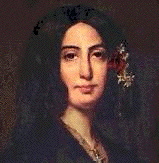 Also on July 1, but in 1804, French Romantic novelist George Sand was born. With her second novel, Indiana (1832), she became the most popular novelist of her time. Sand was attracted to free love and Socialism as well as to feminism. Sand had love affairs with such prominent figures as Prosper Merimée (1803-70), Alfred de Musset (1833-34), and Frédéric Chopin, (1838-47). Her strong social conscience was seasoned with anti-clericalism. On an 1855 visit to Rome, Sand noted, “Rome is the kingdom of Satan … of people kneeling in servitude to its Cardinals … The story must be told of what happens to those subjected to the tyranny of the priesthood.” She did not believe in life after death.
Also on July 1, but in 1804, French Romantic novelist George Sand was born. With her second novel, Indiana (1832), she became the most popular novelist of her time. Sand was attracted to free love and Socialism as well as to feminism. Sand had love affairs with such prominent figures as Prosper Merimée (1803-70), Alfred de Musset (1833-34), and Frédéric Chopin, (1838-47). Her strong social conscience was seasoned with anti-clericalism. On an 1855 visit to Rome, Sand noted, “Rome is the kingdom of Satan … of people kneeling in servitude to its Cardinals … The story must be told of what happens to those subjected to the tyranny of the priesthood.” She did not believe in life after death.
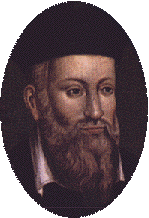 Last Monday, July 2, but in 1566, the supposed prophet known as Nostradamus died – as he predicted! His career, as mystic, doctor, astrologer, apothecary, and writer, was that of a Freethinker, although he died a Catholic. He was born, on 14 December 1503, the son of Jewish parents compelled by the Inquisition to adopt Christianity. His prophecies, published in 1550, are claimed to have predicted everything from Louis Pasteur and his germ theory of disease, Hitler, the explosion of the space shuttle Challenger and the attack on the World Trade Center and Pentagon by Islamic terrorists. And why not? Nostradamus used a technique that prophets and astrologers use to this day: ambiguous specificity. Many writers assert that his prophecies made Nostradamus famous in his lifetime, but of course its “ambiguous specificity” made the prophecy meaningless until after the event – at which time the events were fit to the prophecy.
Last Monday, July 2, but in 1566, the supposed prophet known as Nostradamus died – as he predicted! His career, as mystic, doctor, astrologer, apothecary, and writer, was that of a Freethinker, although he died a Catholic. He was born, on 14 December 1503, the son of Jewish parents compelled by the Inquisition to adopt Christianity. His prophecies, published in 1550, are claimed to have predicted everything from Louis Pasteur and his germ theory of disease, Hitler, the explosion of the space shuttle Challenger and the attack on the World Trade Center and Pentagon by Islamic terrorists. And why not? Nostradamus used a technique that prophets and astrologers use to this day: ambiguous specificity. Many writers assert that his prophecies made Nostradamus famous in his lifetime, but of course its “ambiguous specificity” made the prophecy meaningless until after the event – at which time the events were fit to the prophecy.
Last Wednesday, July 4, aside from the obvious American commemoration, brings us the births of two famous freethinkers.
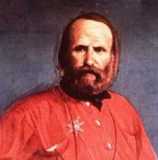 Born on July 4, 1807, was Italian liberator Giuseppe Garibaldi. His Italian Republican leanings were encouraged by his association with Giuseppe Mazzini (1805-1872) and after many attempts, Garibaldi finally won a unified Italy for Victor Emanuel. He was rewarded with a seat in the Italian Parliament. In 1861 President Lincoln offered Garibaldi a command in the Union Army during the Civil War, but a Vatican protest forced Lincoln to withdraw the offer. Mazzini seemed disappointed in Garibaldi’s frank Atheism and scorn for the Church, as if he had not seen the clerical opposition that almost stymied Italian nationhood. In a letter Garibaldi wrote two years before his death, on 2 June 1882, and bluntly said, “Dear friends – Man created God, not God Man. Yours ever, Garibaldi.”
Born on July 4, 1807, was Italian liberator Giuseppe Garibaldi. His Italian Republican leanings were encouraged by his association with Giuseppe Mazzini (1805-1872) and after many attempts, Garibaldi finally won a unified Italy for Victor Emanuel. He was rewarded with a seat in the Italian Parliament. In 1861 President Lincoln offered Garibaldi a command in the Union Army during the Civil War, but a Vatican protest forced Lincoln to withdraw the offer. Mazzini seemed disappointed in Garibaldi’s frank Atheism and scorn for the Church, as if he had not seen the clerical opposition that almost stymied Italian nationhood. In a letter Garibaldi wrote two years before his death, on 2 June 1882, and bluntly said, “Dear friends – Man created God, not God Man. Yours ever, Garibaldi.”
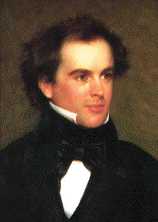 Born on July 4, 1804, was American novelist Nathaniel Hawthorne. The author of The Scarlet Letter (1850) and The House of the Seven Gables (1851), Nathaniel was a descendent of John Hathorne, one of the judges in the Salem witchcraft trials of 1692, the only judge not to repent after the trials. The Scarlet Letter portrays Puritanism as somber and repressive and, in fact, this is the faith he discarded at college. Hawthorne never bothered to attend church as an adult and one biographer observes that, “His own family did not know what his opinions were.” It seems that Hawthorne believed in an impersonal God and supernaturalism, but not in personal immortality.
Born on July 4, 1804, was American novelist Nathaniel Hawthorne. The author of The Scarlet Letter (1850) and The House of the Seven Gables (1851), Nathaniel was a descendent of John Hathorne, one of the judges in the Salem witchcraft trials of 1692, the only judge not to repent after the trials. The Scarlet Letter portrays Puritanism as somber and repressive and, in fact, this is the faith he discarded at college. Hawthorne never bothered to attend church as an adult and one biographer observes that, “His own family did not know what his opinions were.” It seems that Hawthorne believed in an impersonal God and supernaturalism, but not in personal immortality.
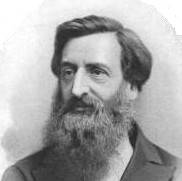 Last Thursday, July 5, marks the founding of the Salvation Army in 1865 by Methodist minister and street preacher William Booth. Booth’s mission adopted the name “Salvation Army” in 1878 and also adopted a quasi-military vocabulary and hierarchy. Booth’s concept of saving souls while saving bodies caught on well and anticipated many government-run charities throughout the 20th century. What could be wrong with that? Allowing the Army to use tax dollars for their work against hunger, homelessness, poverty and abuse, without disallowing their Christian proselytizing, is manifestly a violation of church-state separation. In effect, taxpayers are subsidizing employment discrimination and Christian preachers, allowing government meddling in religion, de-funding voluntary religious charities, playing favorites (or at least deciding which religions are legitimate and which are not), and funding a charitable choice that is demonstrably less efficient at delivering social services than the federal government itself.
Last Thursday, July 5, marks the founding of the Salvation Army in 1865 by Methodist minister and street preacher William Booth. Booth’s mission adopted the name “Salvation Army” in 1878 and also adopted a quasi-military vocabulary and hierarchy. Booth’s concept of saving souls while saving bodies caught on well and anticipated many government-run charities throughout the 20th century. What could be wrong with that? Allowing the Army to use tax dollars for their work against hunger, homelessness, poverty and abuse, without disallowing their Christian proselytizing, is manifestly a violation of church-state separation. In effect, taxpayers are subsidizing employment discrimination and Christian preachers, allowing government meddling in religion, de-funding voluntary religious charities, playing favorites (or at least deciding which religions are legitimate and which are not), and funding a charitable choice that is demonstrably less efficient at delivering social services than the federal government itself.
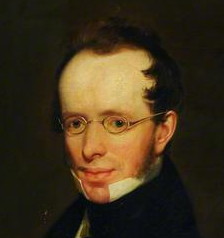 Also on July 5, but in 1791, the English philosopher and philanthropist Samuel Bailey was born. He acquired a fortune as an industrialist and prominent citizen of Sheffield (widely known as "Bailey of Sheffield") and acquired some repute in the philosophical world. At his death, he left some £80,000 to Sheffield to be used for the public good. But Bailey was a Deist and Utilitarian and his fellow Sheffieldians were alarmed to learn of his contempt for Christianity, as evidenced in a scathing anonymous work, Letters from an Egyptian Kafir on a Visit to England in Search of a Religion (1839).
Also on July 5, but in 1791, the English philosopher and philanthropist Samuel Bailey was born. He acquired a fortune as an industrialist and prominent citizen of Sheffield (widely known as "Bailey of Sheffield") and acquired some repute in the philosophical world. At his death, he left some £80,000 to Sheffield to be used for the public good. But Bailey was a Deist and Utilitarian and his fellow Sheffieldians were alarmed to learn of his contempt for Christianity, as evidenced in a scathing anonymous work, Letters from an Egyptian Kafir on a Visit to England in Search of a Religion (1839).
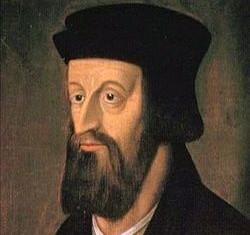 Yesterday, July 6, but in 1415, the leader of a much-needed reform movement within the Roman Catholic Church, Jan Hus was burned at the stake for heresy. It is said that Hus’s doctrinal divergences from Church teaching were socially harmful, but that is laughable given the corruption against which he and John Wyclif (who had died in 1384) had been protesting. Even though Hus had been excommunicated in 1410, he decided to defend his views before the Council of Constance, in what is now Germany, under a guarantee of safe passage from Emperor Sigismund. Unsurprisingly, his “safe conduct” was a ruse: once at Constance, he was arrested, tried, and condemned. His followers, knows as Hussites, still pushed for reform – and were persecuted and slaughtered by the Church.
Yesterday, July 6, but in 1415, the leader of a much-needed reform movement within the Roman Catholic Church, Jan Hus was burned at the stake for heresy. It is said that Hus’s doctrinal divergences from Church teaching were socially harmful, but that is laughable given the corruption against which he and John Wyclif (who had died in 1384) had been protesting. Even though Hus had been excommunicated in 1410, he decided to defend his views before the Council of Constance, in what is now Germany, under a guarantee of safe passage from Emperor Sigismund. Unsurprisingly, his “safe conduct” was a ruse: once at Constance, he was arrested, tried, and condemned. His followers, knows as Hussites, still pushed for reform – and were persecuted and slaughtered by the Church.
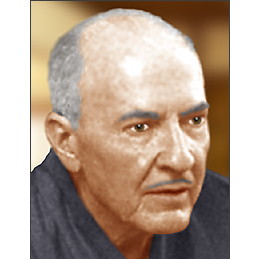 Finally, it was on today’s date, July 7, in 1907, that science fiction novelist Robert A. Heinlein was born. His novels are full of skeptical, if not cynical, references to religion. His 1961 Stranger in a Strange Land is described as “an amazingly iconoclastic and complex satire of sex and religion.” The title character is a Christ-like figure and communion is compared to ritual cannibalism. Heinlein’s novels contain such aphorisms as: “Men rarely (if ever) dream up a God superior to themselves. Most gods have the manners and morals of a spoiled child” and “Religion is a crutch for people not strong enough to stand up to the unknown without help.”
Finally, it was on today’s date, July 7, in 1907, that science fiction novelist Robert A. Heinlein was born. His novels are full of skeptical, if not cynical, references to religion. His 1961 Stranger in a Strange Land is described as “an amazingly iconoclastic and complex satire of sex and religion.” The title character is a Christ-like figure and communion is compared to ritual cannibalism. Heinlein’s novels contain such aphorisms as: “Men rarely (if ever) dream up a God superior to themselves. Most gods have the manners and morals of a spoiled child” and “Religion is a crutch for people not strong enough to stand up to the unknown without help.”
We can look back, but the Golden Age of Freethought is now. You can find full versions of these pages in Freethought history at the links in my blog, FreethoughtAlmanac.com.

